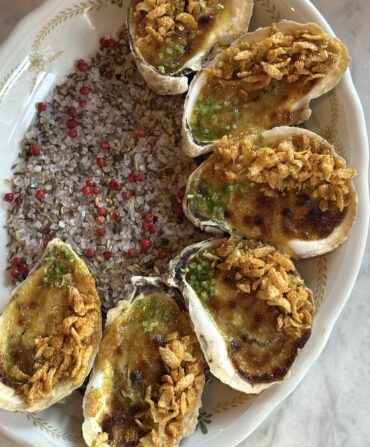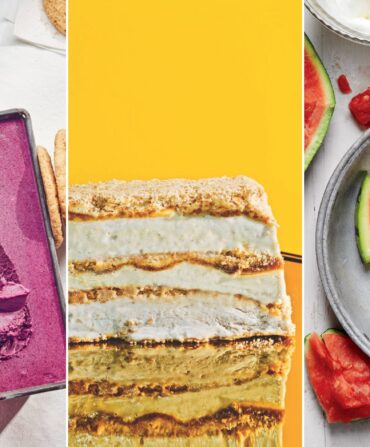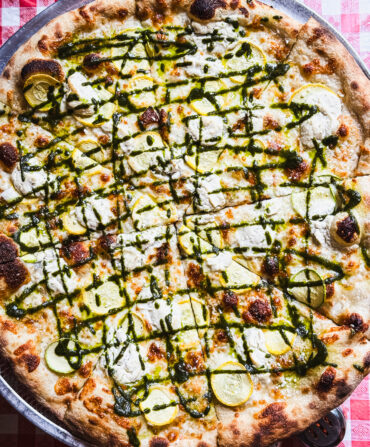If cotton was king of the historical South, Michael Twitty considers rice to be its queen. The James Beard Award–winning author’s first book, the critically acclaimed The Cooking Gene: A Journey through African American Culinary History in the Old South, braided his personal journey of self-discovery with the culinary history of Southern dishes with African diasporic identity. His latest work, Rice: A Savor the South Cookbook, is the new entry in UNC Press’s cookbook series, which supports book-length deep dives into the background of single ingredients such as corn, greens, bacon, and bourbon—staples considered essential to Southern cooking.
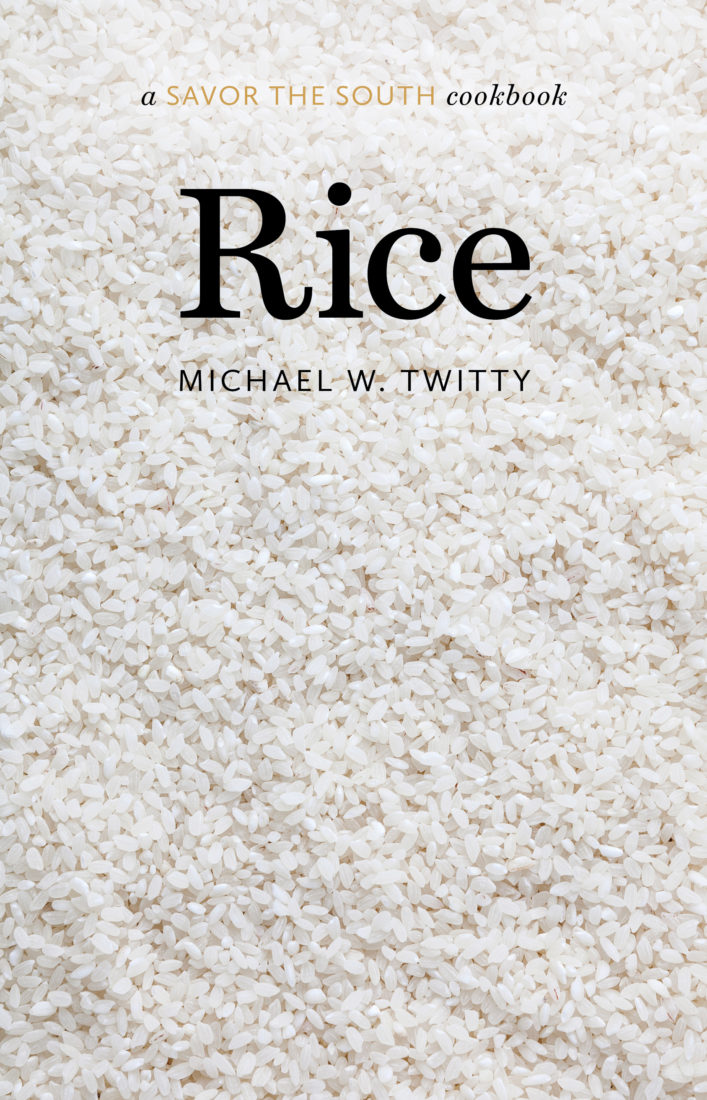
Rice, which contains fifty-one recipes featuring and supporting the grain—including jollof rice, curried rice salad, and Carolina pilau—focuses Twitty’s critical acumen on an ingredient so versatile it has the power to become the main course, a side dish, or dessert. Written in praise of the globally important and endlessly adaptable food, Twitty traces rice’s journey from Africa through the Caribbean and into the American South. Here, Twitty shares his thoughts on culinary nostalgia, how his Judaism influences his approach to cooking, food mythology, and the cooks and chefs that informed the way he sees his work.
So many people of my generation grew up with parboiled rice, or instant pre-cooked rice. When those readers pick up this book, they may be unfamiliar with all of the varieties of rice available now. What advice do you have for those new to cooking rice?
First, do it by the book—if you’re new to a way of cooking, you’re still getting your bearings. Don’t improvise yet. As you progress, you’ll understand that a recipe involves more than what is written on the page—it’s your presence, your patience. At first, it’s about mastering the framework of the recipe, exploring it on your own, and putting your own energy and feeling into it. Your pot becomes your cauldron, and you bring your energy to whatever you’re cooking. And you know, if you’re angry, you cook differently than when you are happy.
It brings to mind a story from the rabbis. One of the rabbis was brought before the Roman emperor, who said, “I’ve been told that you have a certain spice called Shabbat. I want the spice. Bring me the spice.” The rabbi says, “I’m so sorry, I can’t give you that because it’s cooked into our food. Dishes on Shabbat taste so good because we put intentionality into it. We’re making Shabbat beautiful by making good food, enjoying it with good company, and joining together in a holy space.”
Is that why you’re so invested in making sure that these traditional foodways and the dishes that set the scene are preserved?
The holidays are special for me because I am not just making these dishes because it’s tradition—I realize by making these dishes I’m keeping alive Jewish folk culture. I’m making the holiday beautiful with Hiddur Mitzvah, which is a commandment. I’m practicing hospitality and doing kind acts. I’m doing Shalom bayit, which means bringing peace to the home. There are like ten, twenty values that go along with those plates of food.
In the book you talk about rice as ritual and rice as mythology. Today, many people do rituals like make hoppin’ John for New Year’s Day, but may not necessarily understand where that tradition comes from.
I’m working to correct this profoundly misguided passing on of lore about the origins of dishes. We love food lore, because it’s one of the few types of folklore we have left. It’s passed around. I mean, people aren’t nourished by folklore as they used to be. That’s why I clung to everything my grandparents ever said. But what we get, after this long game of telephone over the generations are little narratives that aren’t so true. I don’t mind discussing that lore with somebody and emphasizing the need for cultural, historical, political, and economic literacy in order to determine the facts.
Like the notion that enslaved people wove rice into their hair to have something to eat on the months-long journey across the Atlantic Ocean.
Right. It is one thing to see braiding as a tool to pass along knowledge—maroon women often braided maps of the landscape into their hair. But thinking a couple of grains of hard rice braided into a person’s hair could sustain them for months is not based in reality. It would make the people on that ship a magnet for mice. But what we do know is that seeds came across the ocean with people in a variety of ways.
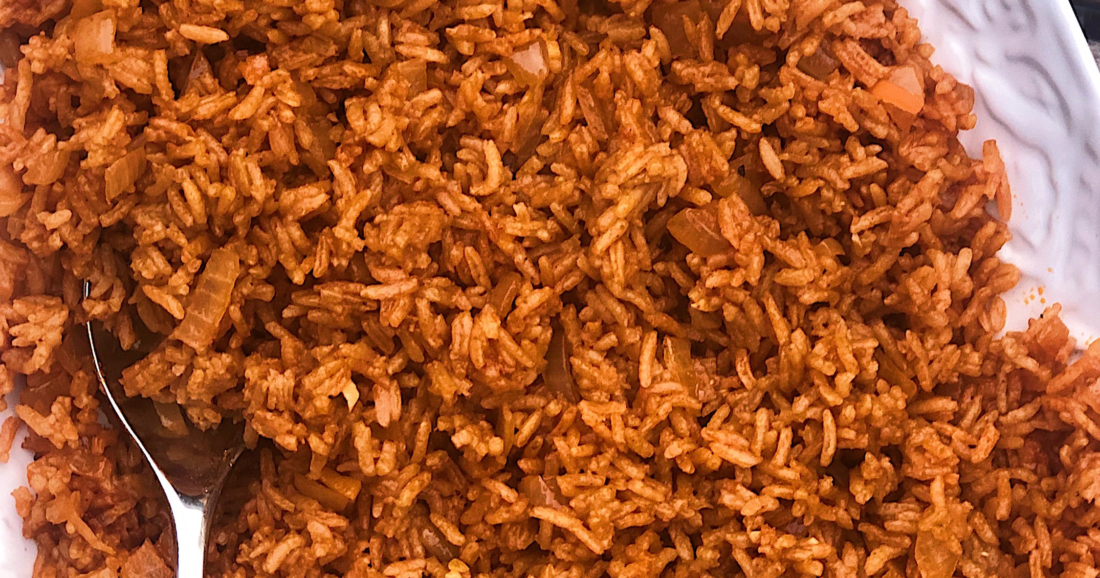
MORE: GET MICHAEL TWITTY’S RECIPE FOR JOLLOF RICE
This book gives us range and depth—it’s obviously comprised of recipes that you hold in high esteem, influenced by the philosophies of chefs you hold in high regard. If you were to put together a rice-based dinner gathering right now, what would that menu look like? You can invite guests—living or deceased. Who would you invite?
I’ve got to have rice waffles…okra soup and rice, red rice, definitely. Crab fried rice is important. Pink rice is also important to me. Grandma’s Country Captain must be there. Of course, rice pudding. I would bring Eliza Seymour Lee, a Black caterer and pastry chef that lived and worked in Charleston before the Civil War—at her height she had four restaurants.
This is a book of recipes, but the glue that holds them together are the keepers of old Southern culinary traditions—legends like Edna Lewis, Princess Pamela, Pati Jinich, and Damon Lee Fowler. Why was it so important to name these people?
When I’m working on a project like this, I look for the border crossers, and for the spokespeople who everybody knows, but nobody seems to remember to annotate. I want to make sure that history is written by people determined to tell it like it is. I want to create traffic back to Princess Pamela, back to Sallie Ann Robinson, back to John Martin Taylor. I enjoy looking at the fullness of people—their histories and stories. Essentially a lot of our historical heroes are outliers. The vast majority people of Black people at that time did not live to be a Frederick Douglass or Harriet Tubman.
I hate the fact that we’ve bought into the myth that unless you’re some renegade, that somehow, you’re not a hero. My grandmother was a hero, and her ancestors were heroes because they put up with the hardships that would enable me to have a decent life. They fought and they existed in their own way, every single day, going back generations. And just because they did get off that sidewalk every once in a while, just because they did put up with some stuff that other people would never have put up with, does not make them any less important. How Black people survived our oppression and the mechanisms that we created to overcome are our greatest form of cultural capital. That’s how we come up with all these different art forms and foods and recipes and ideas to make it through.



